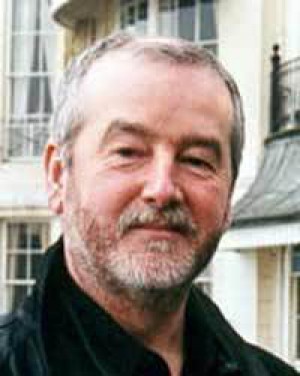author spotlight“Writing can be difficult, but sometimes it really does feel like a kind of magic. I think that stories are living things—among the most important things in the world.”—David AlmondDavid Almond is the winner of the 2001 Michael L. Printz Award for Kit’s Wilderness, which has also...
show more
author spotlight“Writing can be difficult, but sometimes it really does feel like a kind of magic. I think that stories are living things—among the most important things in the world.”—David AlmondDavid Almond is the winner of the 2001 Michael L. Printz Award for Kit’s Wilderness, which has also been named best book of the year by School Library Journal, Booklist, and Publishers Weekly. His first book for young readers, Skellig, is a Printz Honor winner.ABOUT THE AUTHORMiraculous beings living in a miraculous world . . .Maybe it comes from my religious upbringing (I grew up in a big Catholic family): I do feel that we are miraculous beings living in a miraculous world. Sometimes the explanations we’re given—and the possibilities we’re offered—are just too restricted and mechanistic. Stories offer us a place to explore (as writers and readers) what it is to be fully human. I do think that young people are interested in the major questions—Who are we? Where do we come from? Where are we going? Is there a God?—and they’re willing to contemplate all kinds of possibilities. They haven’t yet become tired by such questions. Brutality has to be allowed its place . . .Ten minutes of TV news is enough to convince anybody that the world is a pretty brutal place. We aren’t yet perfect people living in a perfect world—and we never will be—so brutality has to be allowed its place. But the world also contains great tenderness, joy, hope, etc. I suppose that in my books I explore a world and people that are made up of opposites: good and evil, light and darkness, the beautiful and the ugly. And I hope that in the end, goodness, light, and beauty will have some kind of upper hand.Stories as a whole form a kind of community . . . The stories in Counting Stars don’t have a straightforward chronological progression, but there are many links between the different stories. They form a kind of mosaic. Themes hinted at in one story are developed in another. Characters are seen in different situations/settings. I like to think that the stories as a whole form a kind of community or family. It’s often said that there’s a big difference between writing short stories and novels, but I’m not so sure. I think of my novels as a series of scenes/chapters, each of which I write with the same kind of attention I’d give to a short story.A readership of four . . .When I began to write Counting Stars, I wanted to write about my sisters and brother, and to use their real names, so I needed their permission. I worried that they wouldn’t be happy about the book. So I invited them all to my house for dinner, and afterwards I told them my plans, and I nervously read one of the first stories, “The Fusilier.” If they had said no to using their real names, Counting Stars would have been a very different book—and maybe wouldn’t have been written at all. But they said yes! Over the next couple of years, after I’d written each story, I sent copies to my brother and three sisters, so that they could see how things were developing. So, in a sense, the book was written for a readership of four people.Staring out of the window . . .I write at home, in a little office overlooking the back garden. I scribble in an artist’s sketchbook and type onto an AppleMac computer. I work all day—though some of that time will involve staring out of the window and eating apples. But I also travel quite a lot, so I’m used to writing on trains, in hotels, etc.I used to wonder if I'd ever be able to write a novel properly . . .For many years, I wrote nothing but short stories, and I used to wonder if I’d ever be able to write a novel properly. I wrote the stories in Counting Stars before I wrote Skellig, my first children’s novel. I wrote them over a two-year period. As I wrote them, I found myself exploring childhood experience from a child’s point of view. I rediscovered the powerful imaginative and emotional nature of childhood. Really, writing these stories changed me into a writer for children/young adults.Messing about with paper clips . . .I always wanted to be a writer. I wrote little books and stories as a boy, and wanted to see my books on the shelves of our little local library right next to my favorite books: King Arthur and His Knights of the Round Table, The Day of the Triffids, and The Adventures of Turkey. But as for writing, I simply like it all—right from creating new stories to messing about with paper clips. The best piece of writing advice I’ve ever received: Don't give up.It’s often children who read the books with the most insight . . .I think that children can be much more perceptive, creative, and intelligent than we give them credit for. I see this in the many letters I get from my readers and in the things that they say when I meet them. Some adults assume that children will never “get” the more complex aspects of my books, but in fact it’s often children who read the books with the most insight.
show less

